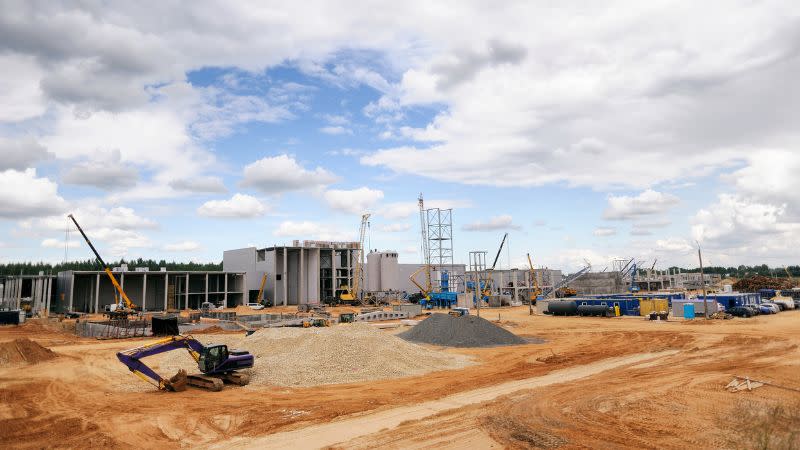
NOMINATIONS CLOSE SEPTEMBER 12 RECOGNISING THE INDIVIDUALS BEHIND THE PROJECTS
NOMINATIONS CLOSING SEPTEMBER 12 URBAN LEADER AWARDS
Resources
Newsletter
Stay up to date and with the latest news, projects, deals and features.
Subscribe
Continued focus on the industry’s environmental impact has led Australian construction businesses to explore new ways of working more sustainably.
To reduce project impacts and avoid potential regulatory action, contractors and subcontractors must know their legal obligations to protect the environment, and implement appropriate controls to prevent pollution from construction waste, water and noise.
Australia’s largest equipment hire specialist, Coates can assist the industry in managing its environmental impact though specialist equipment advice, accredited training programs and a Greener Choices equipment range.
In this article, Coates explores how to comply with relevant environmental regulations; and shares tips to reduce the environmental impact of your construction projects.
What are your obligations?
It’s important for businesses to understand that the framework for environmental protection is complex and can be specific to project approvals. Also, that regulatory requirements in Australia are shared by a host of authorities in local, state and federal government agencies.
Project-specific requirements
Project-specific requirements are typically documented in planning approvals and outline site-specific environmental management requirements in areas like hours of operation, local traffic and noise, equipment specifications, and processes for managing waste and water runoff. To comply, you must build these requirements (and those imposed by commercial agreements) into your construction project’s planning and resources.
Local project requirements
Local environmental protection requirements are typically determined at state level, through Environmental Protection laws. These laws are enforced by agencies like state EPA or equivalents, or local councils, as the relevant regulatory authority. Managing pollution includes proactive requirements for mitigating risks to air, land, water and biodiversity; mandatory notification of pollution events; and management of contaminated land and water.
Waste management requirements
Waste management is a significant challenge in construction, and in each jurisdiction across Australia business are required to identify potential hazards (including contaminated soil and water) and utilise licensed disposal methods. Beyond the environmental benefit, there is significant opportunity to reduce project costs by planning waste management effectively.
Environmental regulatory frameworks are complex and continually evolving, so seek expert advice where needed. Because if something does go wrong, there is no defense in not knowing your legal requirements.

Tips to diminish environmental pollution
These tips can help minimise your environmental impact and help your construction projects to adhere to current guidelines.
Be responsible: understand and comply with project specific and local regulatory requirements, for your business and other relevant parties on site.
Routinely conduct risk assessments in priority areas like noise pollution, water and waste management. Create work practices to decrease these risks.
Design a plan to manage the water on or under your job site. Liaise with an expert like Coates to treat contaminated water based on your project’s regulatory framework and needs.
Understand waste streams through the project timeline, design out waste where possible, and create a waste management plan to safely and sustainably store, handle and dispose of remaining waste.
Complete specialist training for high-risk tasks like the removal of asbestos or other harmful materials, through a registered training organisation like Coates.
Keep clear records on your project's compliance with environmental guidelines.
Low-emission equipment with solar and hybrid technology can represent a competitive advantage for your project through night-time ‘quiet operation’, reduced on-site harmful emissions and reduced project Greenhouse Gas emissions. Connect with a Coates Product Specialist to find the right Greener Choices for your project.
Consult the Coates team today for expert equipment advice, to view the Greener Choices range, or to discuss your training needs.
The Urban Developer is proud to partner with Coates to deliver this article to you. In doing so, we can continue to publish our daily news, information, insights and opinion to you, our valued readers.